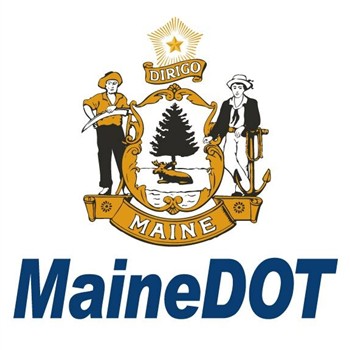Augusta, Maine - Recharge Maine, the State's initiative to develop a statewide network of public, high-speed EV chargers, has announced planned awards of more than $6 million in National Electric Vehicle Infrastructure (NEVI) Program funds authorized by the federal Bipartisan Infrastructure Law (BIL). The planned awards will be used to support development of new chargers at seven sites in locations, such as grocery stores, shopping malls, and gas stations, spanning Bangor, Augusta, and the stretch of U.S. Route 1 between Ellsworth and Freeport. Planned awards, and the associated locations for the chargers, will go to:
- Equilon Enterprises LLC (Shell), 322 Stillwater Ave, Bangor
- Tesla, Inc., 197 Civic Center Drive, Augusta
- ReVision Energy, 225 High Street, Ellsworth
- D&C Properties, 423 East Main Street, Searsport
- Tesla, Inc., 75 Maverick Street, Rockland
- Irving Oil, 1555 Atlantic Highway, Waldoboro
- Midcoast Regional Redevelopment Authority, 11 Atlantic Avenue, Brunswick
Through a separate competitive solicitation to deploy funds from the Maine Jobs and Recovery Plan (MJRP), Recharge Maine also is announcing today awards to an additional five sites to extend the charging network along the most traveled routes to the Crown of Maine and to the Eastern border with New Brunswick.
Awarded bidders using MJRP funds, and the associated locations for the chargers, are:
- Irving Oil, 1941 Medway Road, Medway
Through a separate competitive solicitation to deploy funds from the Maine Jobs and Recovery Plan (MJRP), Recharge Maine also is announcing today awards to an additional five sites to extend the charging network along the most traveled routes to the Crown of Maine and to the Eastern border with New Brunswick.
Awarded bidders using MJRP funds, and the associated locations for the chargers, are:
- Irving Oil, 1941 Medway Road, Medway
- Universal EV LLC, 282 North Street, Houlton
- True Upside Consulting, 5 Clark Siding Road, Ashland
- True Upside Consulting, 162 Houlton Road, Danforth
- Universal EV LLC, 103 Main Street, Machias
Both initiatives aim to have the awarded chargers in operation next year.
"This funding will help expand our state's EV charging network, reducing range anxiety for EV users who live, work, and travel in Maine," said MaineDOT Commissioner, Bruce Van Note. "Increasing electrification of vehicles will help improve our quality of life by reducing carbon emissions from the transportation sector."
Today's announcement marks a major step forward in the State's plan to fill gaps and add capacity and reliability to Maine's public fast charging network, as contemplated in the Maine Plan for Electric Vehicle Infrastructure Deployment (PEVID) developed by the Maine Department of Transportation (MaineDOT) in July 2022. The Department has contracted with the Efficiency Maine Trust (Efficiency Maine) to administer the initiative. Over the next several years, Maine will receive approximately $18 million from the NEVI Formula program to fund the development of the State's deployment plan. Currently, a total of 708 Level 2 community plugs and 216 DC high-speed charging plugs are publicly available in Maine. Consumer's can find all of these charger locations using the charging station locator on the Efficiency Maine website.
"The sites selected through this competitive bid process will significantly improve the convenience of driving EVs throughout the state," said Michael Stoddard, executive director of Efficiency Maine. "This new infrastructure will give a big boost to the market for a new generation of cars and trucks in Maine."
"In Maine and across the country, President Biden's Investing in America agenda is building the backbone of our national network of EV charging stations that will ensure a seamless experience for drivers when they're charging up similar payment systems, clear pricing information, interoperable connector types, and reliable charging speeds as we make the historic transition to electric vehicles," said Shailen Bhatt, Federal Highway Administrator. "With federal investments made possible by the Bipartisan Infrastructure Law, Maine is taking a critical step forward as states across our nation begin deploying EV chargers for the communities they serve, and we are proud partner with them in this shared project."
"Maine is leading efforts to build a future where everyone can ride and drive electric, starting with plans to electrify the vital I-95 and U.S.-1 corridors," said Gabe Klein, director of the Joint Office of Energy and Transportation. "Maine's efforts are an excellent example of how states can work to advance equity by creating access to lower-cost electrified transportation that also reduces emissions in disproportionately impacted urban communities. Together, were creating a national charging network that serves - and benefits all Americans in their own backyards."
About Recharge Maine
Recharge Maine is a statewide initiative to expand the availability of charging infrastructure for electric vehicles (EVs) on Maine's highways and within communities. Recharge Maine is guided by the strategies and priorities outlined in Maine's Plan for EV Infrastructure Deployment, approved by the FHWA in 2022 and available at https://driveelectric.gov/state-plans/. To date, the initiative has awarded funds for 395 charging ports at 136 locations throughout Maine. That includes 46 DC fast charge (DCFC) ports on the states Alternative Fuel Corridors and 349 Level 2 (L2) publicly accessible community ports at businesses, municipalities, state agencies, multi-unit dwellings, and other public properties.
About MaineDOT
The Maine Department of Transportation, also known as MaineDOT, is the office of state government charged with the regulation and maintenance of roads, rail, ferries, and other public transport infrastructure in the state of Maine.
About Efficiency Maine Trust
The Efficiency Maine Trust (Efficiency Maine) is the independent, quasi-state agency established to plan and implement energy efficiency programs in Maine. Through its suite of nationally recognized programs, Efficiency Maine provides consumer information, marketing support, demonstration pilots, discounts, rebates, loans, and other initiatives to promote high-efficiency equipment and operations that help Maines homes, businesses, and institutions reduce their energy costs and lower their greenhouse gas emissions. Visit www.efficiencymaine.com for more information.
Both initiatives aim to have the awarded chargers in operation next year.
"This funding will help expand our state's EV charging network, reducing range anxiety for EV users who live, work, and travel in Maine," said MaineDOT Commissioner, Bruce Van Note. "Increasing electrification of vehicles will help improve our quality of life by reducing carbon emissions from the transportation sector."
Today's announcement marks a major step forward in the State's plan to fill gaps and add capacity and reliability to Maine's public fast charging network, as contemplated in the Maine Plan for Electric Vehicle Infrastructure Deployment (PEVID) developed by the Maine Department of Transportation (MaineDOT) in July 2022. The Department has contracted with the Efficiency Maine Trust (Efficiency Maine) to administer the initiative. Over the next several years, Maine will receive approximately $18 million from the NEVI Formula program to fund the development of the State's deployment plan. Currently, a total of 708 Level 2 community plugs and 216 DC high-speed charging plugs are publicly available in Maine. Consumer's can find all of these charger locations using the charging station locator on the Efficiency Maine website.
"The sites selected through this competitive bid process will significantly improve the convenience of driving EVs throughout the state," said Michael Stoddard, executive director of Efficiency Maine. "This new infrastructure will give a big boost to the market for a new generation of cars and trucks in Maine."
"In Maine and across the country, President Biden's Investing in America agenda is building the backbone of our national network of EV charging stations that will ensure a seamless experience for drivers when they're charging up similar payment systems, clear pricing information, interoperable connector types, and reliable charging speeds as we make the historic transition to electric vehicles," said Shailen Bhatt, Federal Highway Administrator. "With federal investments made possible by the Bipartisan Infrastructure Law, Maine is taking a critical step forward as states across our nation begin deploying EV chargers for the communities they serve, and we are proud partner with them in this shared project."
"Maine is leading efforts to build a future where everyone can ride and drive electric, starting with plans to electrify the vital I-95 and U.S.-1 corridors," said Gabe Klein, director of the Joint Office of Energy and Transportation. "Maine's efforts are an excellent example of how states can work to advance equity by creating access to lower-cost electrified transportation that also reduces emissions in disproportionately impacted urban communities. Together, were creating a national charging network that serves - and benefits all Americans in their own backyards."
About Recharge Maine
Recharge Maine is a statewide initiative to expand the availability of charging infrastructure for electric vehicles (EVs) on Maine's highways and within communities. Recharge Maine is guided by the strategies and priorities outlined in Maine's Plan for EV Infrastructure Deployment, approved by the FHWA in 2022 and available at https://driveelectric.gov/state-plans/. To date, the initiative has awarded funds for 395 charging ports at 136 locations throughout Maine. That includes 46 DC fast charge (DCFC) ports on the states Alternative Fuel Corridors and 349 Level 2 (L2) publicly accessible community ports at businesses, municipalities, state agencies, multi-unit dwellings, and other public properties.
About MaineDOT
The Maine Department of Transportation, also known as MaineDOT, is the office of state government charged with the regulation and maintenance of roads, rail, ferries, and other public transport infrastructure in the state of Maine.
About Efficiency Maine Trust
The Efficiency Maine Trust (Efficiency Maine) is the independent, quasi-state agency established to plan and implement energy efficiency programs in Maine. Through its suite of nationally recognized programs, Efficiency Maine provides consumer information, marketing support, demonstration pilots, discounts, rebates, loans, and other initiatives to promote high-efficiency equipment and operations that help Maines homes, businesses, and institutions reduce their energy costs and lower their greenhouse gas emissions. Visit www.efficiencymaine.com for more information.
###


